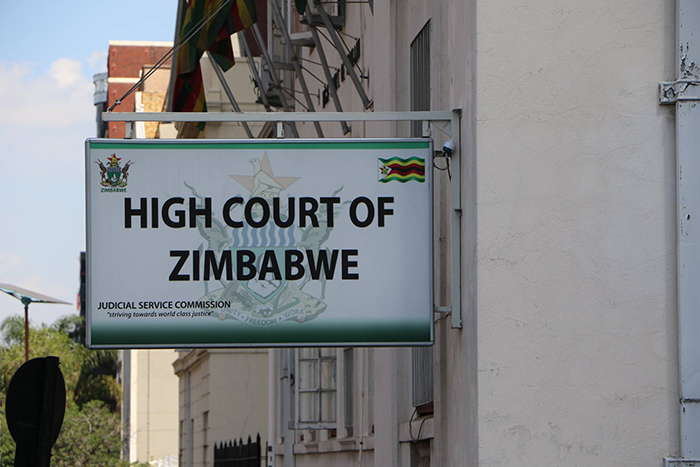Herald Reporter
THE High Court has granted an application for dismissal for want of prosecution against a class action by a number of beneficiaries of stands at Crowhill Farm.
In a ruling delivered yesterday, Justice Zhou found that the respondents, represented by lawyer Tazorora Musarurwa, did not offer satisfactory arguments for their prospects of success in their class action application.
Justice Zhou also granted the application by Crowhill Farm because the respondents were barred from approaching the court in terms of Order 32 Rule 238 Sub-rule 2 (b) after they failed to file their papers within the stipulated period.
Crowhill Farm was represented by Manase and Manase Legal Practitioners.
Facts of the matter were that beneficiaries of stands at Crowhill filed a class action against Crowhill Farm (Pvt) Ltd, the legal owners of the land, last year where the essential relief they were seeking was that Crowhill Farm cannot cancel title deeds that were issued to them.
Crowhill Farm has consistently stated that the title deeds should be cancelled because the stands were sold fraudulently by people who neither had the authority nor were directors or employees of the company. But the group which filed the class action had insisted that there was a relationship between Crowhill Farm (Pvt) Ltd, and Mr Cephas Msipa and Mr Themba Hlongwane who sold the land to them.
Crowhill Farm (Pvt) Ltd has maintained that the two acted fraudulently by subdividing the farm and disposing of stands without the company’s authority.
The beneficiaries lodged a class action represented by Mr Musarurwa against the decision by Crowhill Farm to cancel the title deeds they had received from Mr Msipa and Mr Hlongwane.
In October last year, Crowhill Farm responded to the application. However, five months passed without the applicants (the beneficiaries) moving their case forward.
High Court rules state that one must file answering affidavits within one month or to set the matter down or else the respondent (Crowhill Farm [Pvt] Ltd) has the remedy in which they can ask the court to dismiss case for want of prosecution. As a result, Crowhill Farm (Pvt) Ltd filed a chamber application for dismissal for want of prosecution in December where now the lawyer Mr Musarurwa and the stands beneficiaries were cited as respondents.
A founding affidavit was subsequently done by Crowhill Farm which they responded to. Crowhill Farm further filed an answering affidavit and heads of argument in January and since then they did not follow up.
This week, Mr Musarurwa then filed heads of argument and a chamber application for consolidation of the two cases, the chamber application for dismissal and the class action, six months after Crowhill Farm had filed its papers.
High Court rules state that upon receiving the applicant’s heads of argument the respondent has 10 working days within which to respond meaning that they responded out of time.
It has since emerged that the moment they received the Crowhill Farm chamber application for dismissal, they filed papers in the main case but did not do anything to set the class action matter down.
The matter was set down before Justice Zhou on the opposed roll yesterday.
Crowhill Farm argued that all the respondents were barred, Mr Musarurwa did not file his papers in time and the rest of the respondents did not bother to respond and therefore the main matter, the class action, should be dismissed with costs for want of prosecution.
The second argument was that there was already a trail of wilful disdain of the court rules which started in the class action where they respondent after five months instead of one month.
Also, they committed a further sin when they did not set the matter down, they did not seek for a court date.
Justice Zhou granted the order that Mr Musarurwa and the other respondents had not proffered any reasonable explanation for their delay to file papers and that there was no satisfactory argument for the prospects of success in the class action.
He also found that because they were already barred, they could only address the court for the upliftment of the ban which they did not do.
As a result, the judge granted the application for dismissal for want of prosecution.

